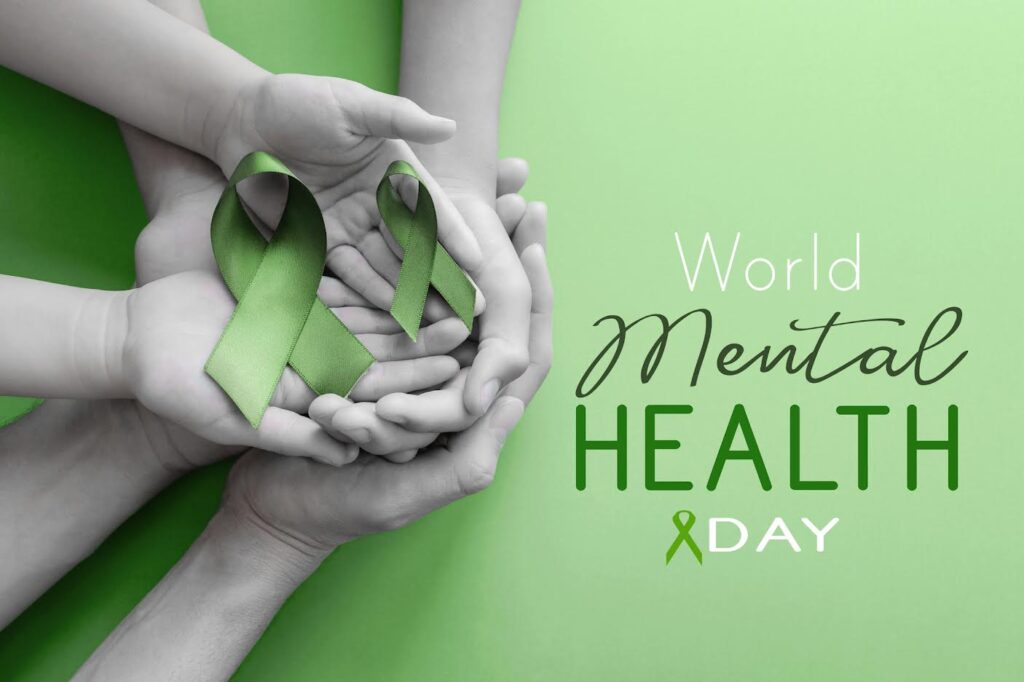
Combatting Stigma on World Mental Health Day
October 10 is World Mental Health Day, and this year, we want to highlight mental health stigma and how to address it.
Despite growing awareness and significant progress in both the perception and treatment of mental health issues throughout the world, we still have a ways to go when it comes to improving access to resources for improved mental health, and achieving better understanding for mental health issues in the general public.
Through a combination of lack of knowledge, lack of material resources, and ongoing cultural stigma, mental health issues that can be treated continue to go ignored – while one in five American adults experience mental health issues every year, for example, only about 46 percent get any help, let alone the help they might need. Even among patients with debilitating conditions, such as depression with severe impairment, it’s estimated that only about three out of four cases get any treatment.
Stigma Kills
Research shows that cultural stigma can be a huge barrier to treatment. Misconceptions about how mental health issues begin, how they are caused, what the dangers are in treating them, and the effectiveness of treatment continue to foster negative attitudes against people with mental disorders.
Many people avoid getting the help they need because they worry about being labeled crazy. Depressed people are still frequently seen as lazy. People with anxiety disorder are still looked down upon as meek or dramatic.
There is a distinct lack of knowledge on the connection between stress, physical pain, and mental health, to the point that people do not realize or understand how depressive disorders or anxiety disorders are leading causes of disability in the workforce.
Disability rights for people with serious mental health issues are in place, but there are still plenty of violations in practice. And while awareness around neurodivergence and mental disability has grown, accessibility issues and ableism remain the norm in public spaces.
In addition to cultural stigma, there are signs of systemic stigma in healthcare, which can be discouraging to many individuals seeking treatment. Studies show that people who come to mental health professionals and physicians for help feel dismissed and dehumanized at times, and may be less likely to seek treatment elsewhere.
Furthermore, individuals with certain conditions are less likely to receive the care they need, both physical and mental, and are more likely to be rejected by healthcare staff.
Tendencies in behavior towards individuals show an inclination to put the disorder ahead of the person – focusing on the symptoms of the illness before taking the person behind them into consideration. Worse yet, studies also show that some healthcare providers are pessimistic about the reality and likelihood of recovery.
Whether you yourself struggle with mental health issues or have a loved one struggling with a mental health problem, there are a few ways you can address the effects of stigma.
What You Can Do to Combat Stigma on World Mental Health Day
This World Mental Health Day, let us make a point of improving conditions for our loved ones. Whether you have a history of mental health problems or are simply personally invested in the treatment of someone you care about, you can take steps to help reduce and combat the effects of mental health stigma. Here’s how:
- Create promotional material and draw attention to local support groups for PTSD, drug use, post-partum depression, and other mental health issues.
- When your loved ones express outdated or misinformed opinions on mental health policy and mental healthcare, take the time to point them towards better sources of information.
- Support your loved ones in treatment. Collaborate with their therapist or psychiatrist to help improve treatment adherence. Offer to drive them to support meetings and therapy sessions. Be there for them.
- Encourage your loved one to share their story and experiences with others. Whether it’s in a smaller scale through meetings or on the Internet, using your voice to share your experiences can be a great way to validate those experiences, and finding others who can relate to that pain. Sharing your experiences can help dispel myths and shine a light on what it’s really like to struggle with certain symptoms, especially for lesser known or misunderstood conditions like schizophrenia and OCD.
No matter how cynical the world might seem sometimes, your voice and influence as a friend or relative matters. And if you yourself are struggling with mental health issues, know that you are never alone, no matter how isolated you might feel.
Support groups are a great way to combat stigma, find others with similar experiences, and stick together. Education and collaboration are great ways to dispel stigma and help others who are struggling find a way forward.
Online communities can be a powerful tool as well. Sharing progress with others, talking about setbacks and experiences, sharing resources and information, and becoming part of a larger global community can help build resilience to real world stigma through the knowledge that one person is a part of something larger, and is never alone.
Protecting Your Loved Ones from Stigma
There isn’t much we can do to shield our loved ones from the words and actions of others – especially in the case of a widespread issue, like mental health stigma. But what we can do is foster resilience and offer support.
Make sure your loved ones know that they are not in this alone – help them find support groups, local or online, and connect them with people who have shared similar experiences.
Encourage them to seek help if they haven’t or support them in changing providers. Bring them to meetings and therapy sessions. Listen to their experiences and let them be heard.
World Mental Health Day is once a year, but millions of Americans live with mental health issues and the problems they bring every day. A little bit of support can go a long way.
